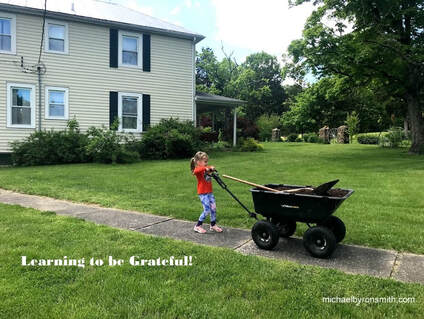
Is there anyone reading this that hasn’t slept in a warm bed, been awaken by the alarm on your smart-phone - which has almost any fact, type of entertainment, or directions to anywhere? You have refrigerated food that can be cooked or warmed in no time in your microwave. You may head off to work in your car or find public transportation available. Surprisingly, everything works. Highways, utilities, law enforcement, you name it, have occasional issues but overwhelmingly are dependable.
We live longer and healthier than at any time in history. My infant sister died of an esophageal issue in 1953, but my neighbor’s son thrives today, having had the same issue as a baby in 1980. Various diseases have vaccines. Infant and toddler deaths used to be common, now they are a tragic but comparative rarity, especially in the US. We have more free time and unlimited choices in food and entertainment. Crime has decreased dramatically - although we don’t realize it because we hear about everything bad that happens instantly. According to the document, named "The State of Food Insecurity in the World 2015" (SOFI), in developing regions, the proportion of undernourished people has almost halved since 1990, decreasing from 23.3% of the population to 12.9%.
All these good trends do not mean there is no sadness in the world. The pain of a loved one being hurt or dying will never cease. Misfortune still happens, and life is not fair. But that is not the point here. Outside of individual circumstances, our collective lives are blessed with advantages never known for thousands of years and up to less than 200 years ago, and in some examples, less than 20 years ago.
So What is the Point?
As I mentioned earlier, we adjust to our conveniences and become ungrateful. Caves were once valued and battled over as the height of shelter. Wouldn’t the cavemen have loved a canvas tent or a log home? Few of us would want to live in a tent these days. These seem to be extreme examples only because of our current standards. But there’s something to be gained by recalling the past and our current fortunes because doing so will ease some of the sorrows or injustices we may feel today putting them in a new perspective. As an example, a young girl living in rural China in 1900 would not spend one moment of sadness for anyone not making the Cheerleading Squad at school. Understanding our times are different, it’s okay to be down for a day if that was you, but move on quickly! Your son may have diabetes, but it can be controlled, giving him a full life, whereas he could have died young in the past.
My family was poor to the point of homelessness at times, but I never recall being hungry, and my education was free, allowing me to move out of that situation. One of my sisters had a baby at seventeen years old and was divorced soon after. She struggled for a while but earned a college degree in her forties because she lived in a society that had a path out if taken, unlike being trapped in a specific class like most societies in the old world and even some countries today.
Summary
Yes, every generation has the story they tell their children of how they walked three miles to school in the snow, uphill both ways. We all had it worse than the generation that followed us. And just like we did, our children laugh at our self-pity. But there is value in children learning and knowing History. That value is gratefulness! Let them read “A Day in the Life of Ivan Denisovich” by Solzhenitsyn. The story is from not so long ago, and it puts some perspective on how some people have been forced to live their lives. Many other novels or history books will tell these true stories. They will be much more useful and effective than our sad stories of how tough life was before smart-phones and Netflix!
Teach your children to:
Welcome challenges, for they make you grow! Know history, for it gives you perspective. Be grateful, for it removes boorishness!








